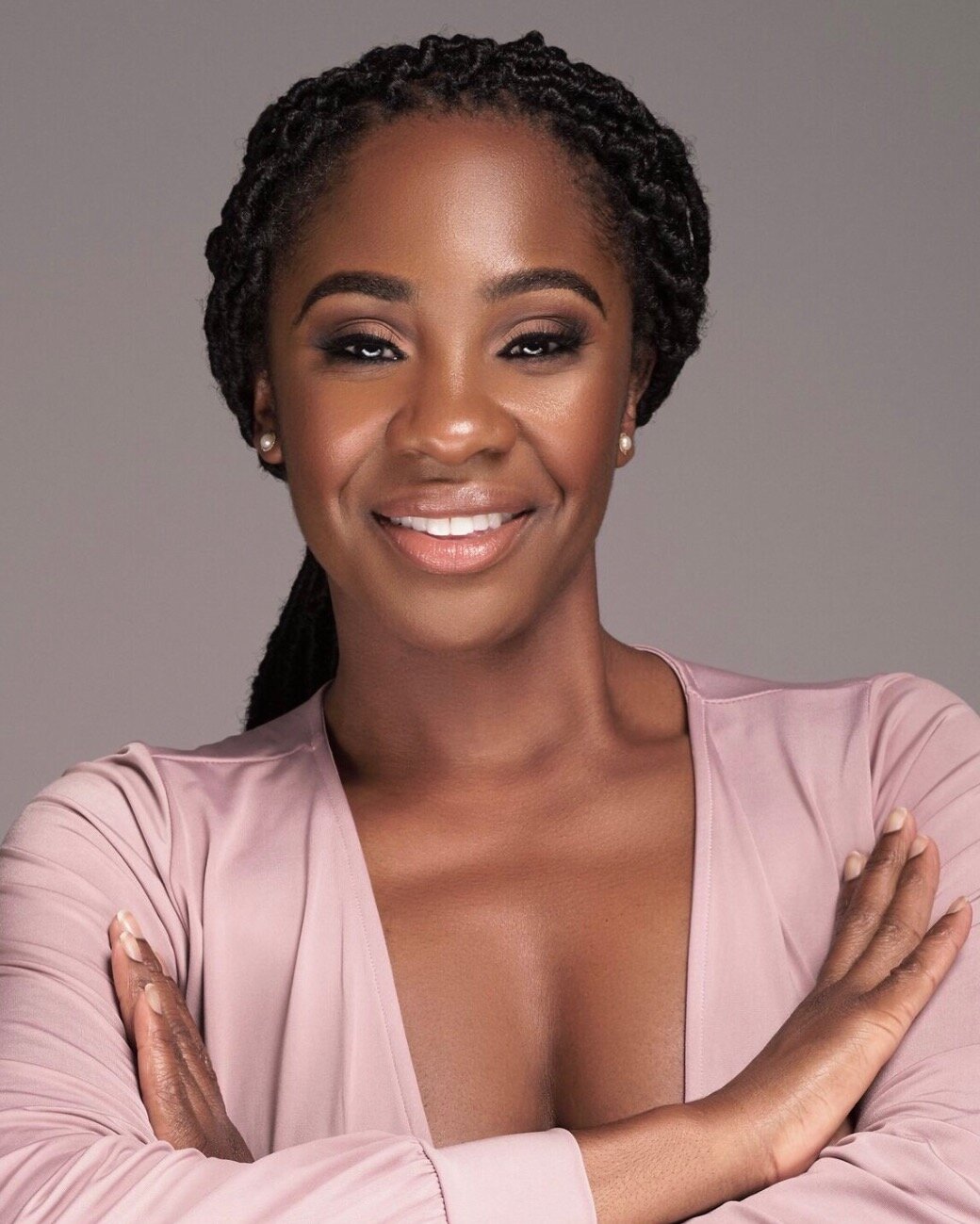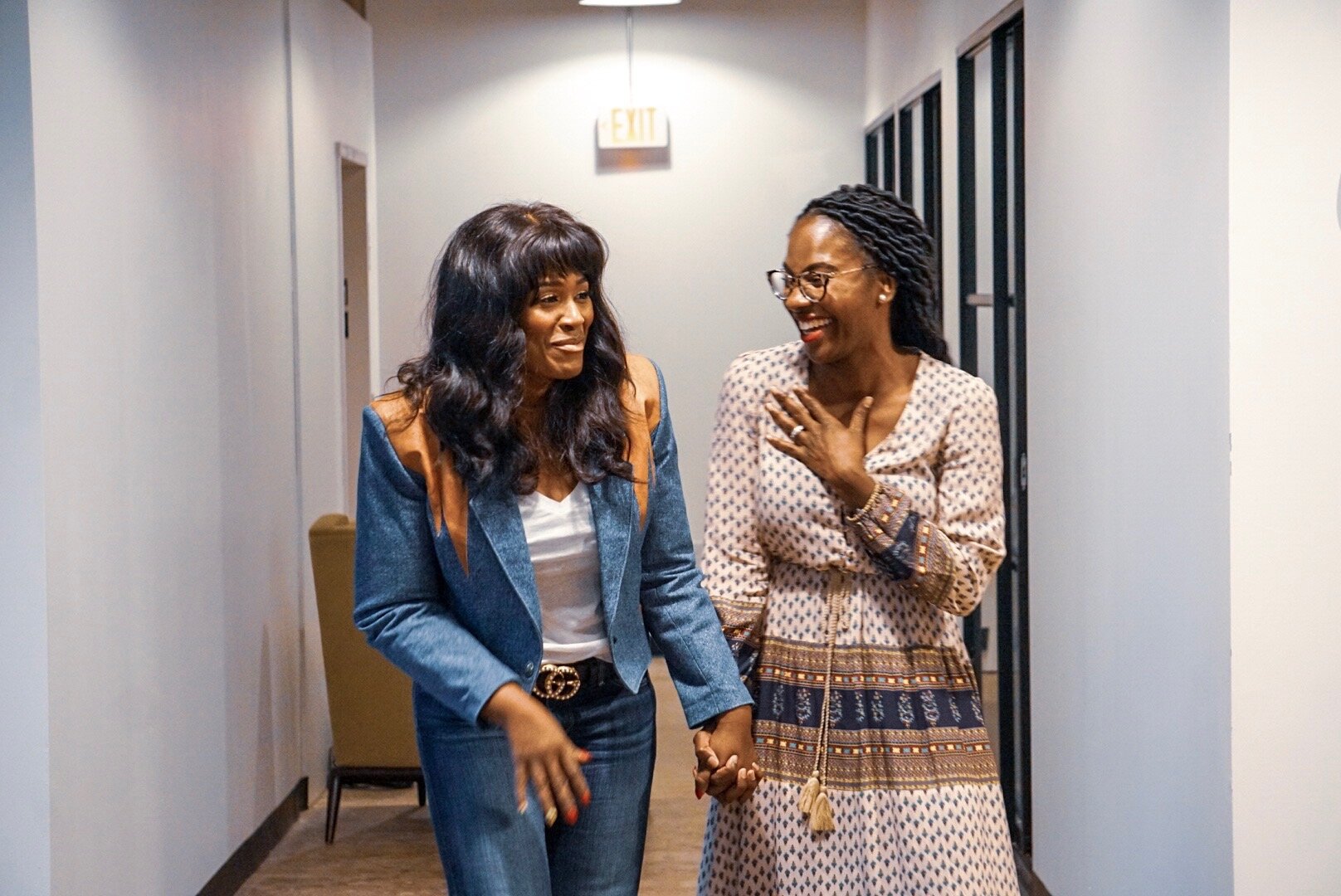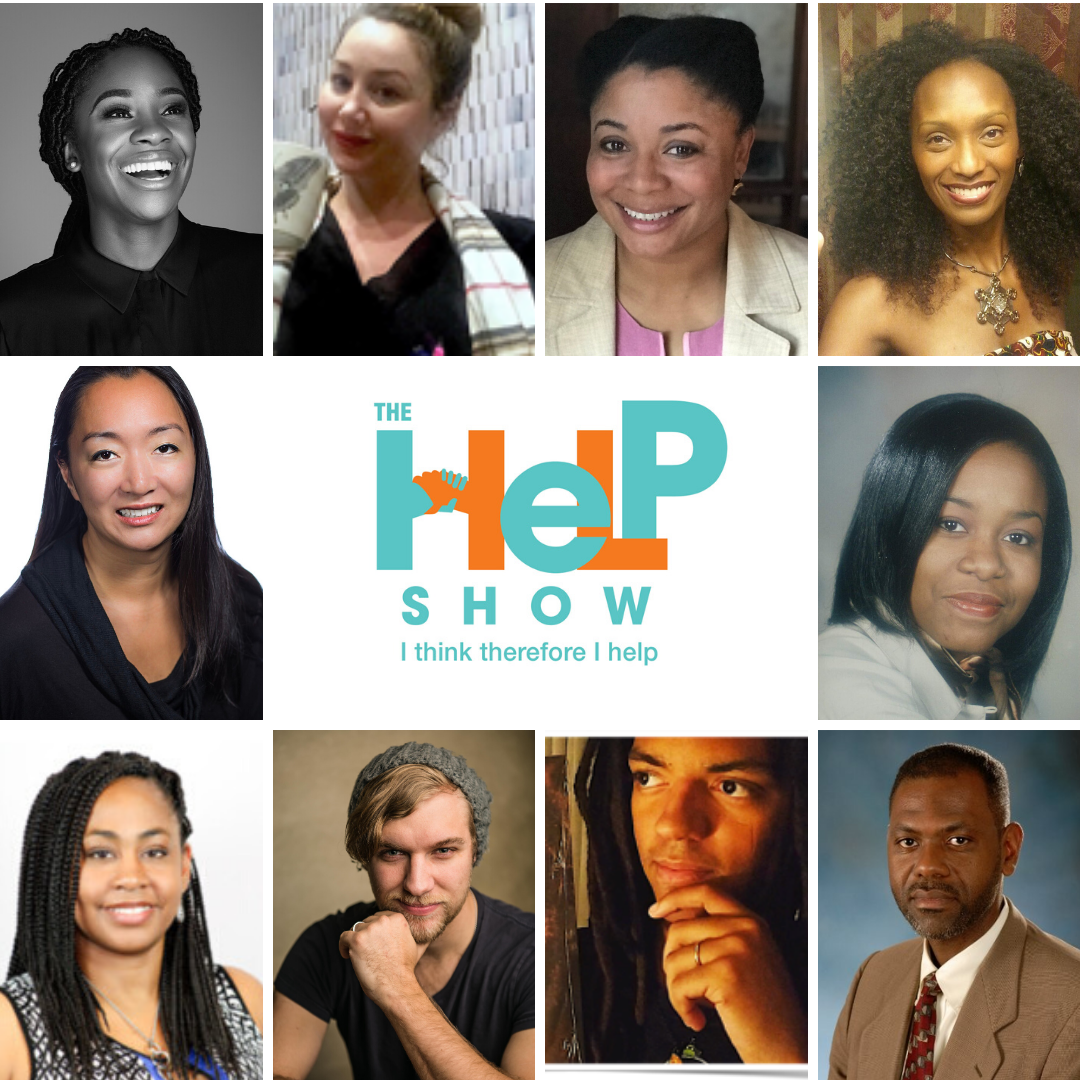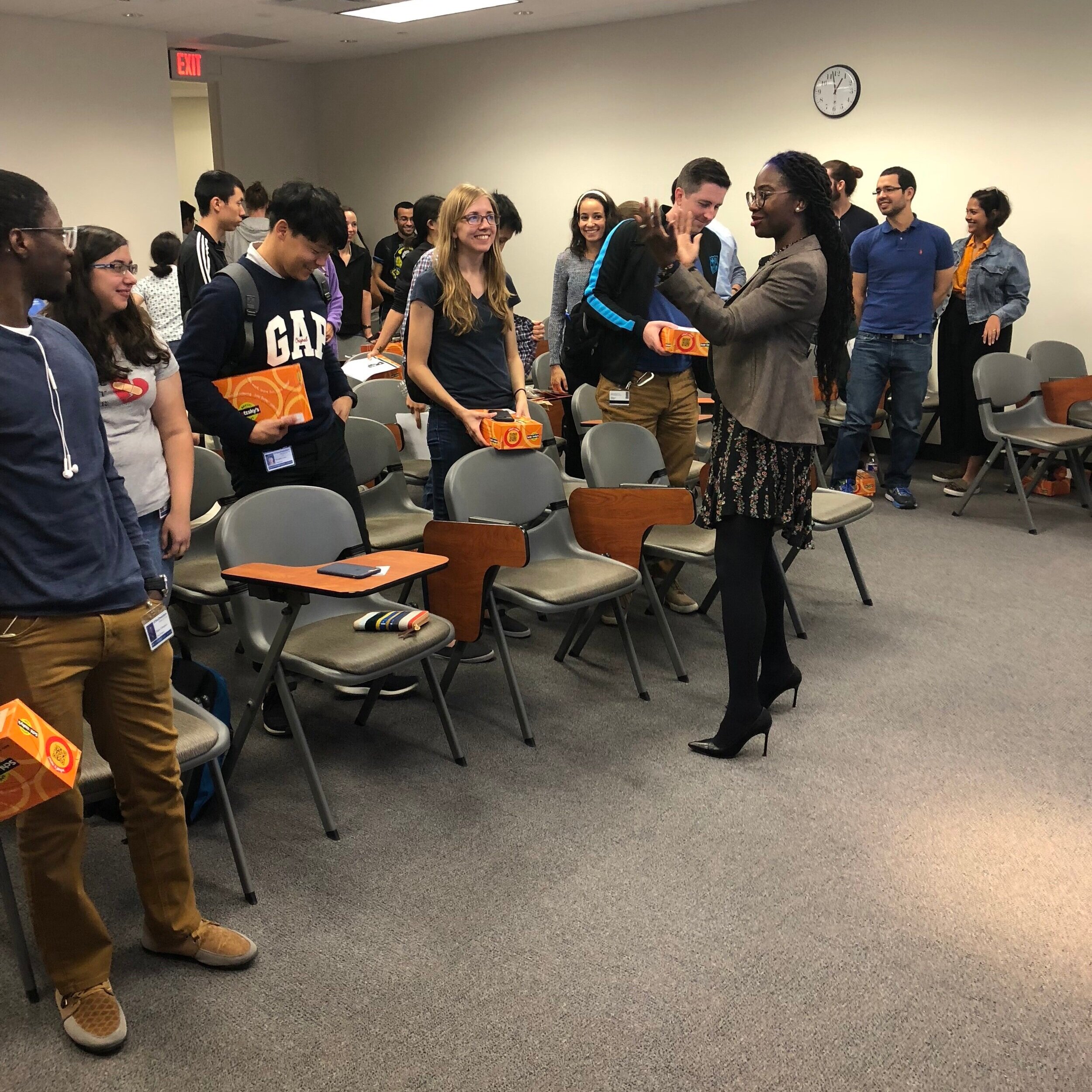Interview by Mary Martin. Photos courtesy of The Help Show.
Founded by NiEtta Reynolds, The Help Show is a nonprofit organization centered around a podcast all about mental health. The Help Show features conversations that help educate communities about the stigma of mental health, especially empowering minority communities to access information and resources. NiEtta’s professional experience as a social worker and Qualified Mental Health Professional, combined with her personal story of loss and discovery, has bridged gaps for her listeners and friends. In this interview, NiEtta shares her thoughts about her childhood in South Dallas and how podcast interviews have changed the way she views mental health.
Tell us a bit about growing up in South Dallas and how you ended up choosing social work as a career path.
Growing up in South Dallas was a great experience. I grew up in a two-parent home, and both of my parents worked. The only thing I ever saw as a kid growing up was love, discipline and determination. My parents always pushed education as a priority in our home and said that was always the key to success in life.
I was raised in a historical black neighborhood call South Blvd. I grew up around black excellence my whole life. There were principals, teachers, limo drivers, doctors, attorneys, real estate agents, art curators, nurses, and entrepreneurs. I grew up in a community that stuck together, and when the street lights turned on, every child was in the house.
NiEtta Reynolds, Founder and Host, The Help Show
Unfortunately, the South Dallas I see today is the opposite. There are more homeless people and drug addicts who roam the streets and neighborhood, which is now being gentrified. Those who live on fixed income are now becoming displaced in this economic crisis, and mental health issues are increasing because of lack of education, racism, sexism and disparity.
How did I choose social work? Actually, social work chose me. I am people person, so I like to help people. Sadly, my friend died by suicide about four years ago, and I couldn’t understand why. At the moment, I was confused, upset, hurt—and any other emotion you think of, I had it. The question I asked myself was “why would he do this to us—his family and friends that loved him so much—why did he take his love from us?”. I had never known anyone in my personal circle, as an adult or while growing up, who died by suicide, but I knew from that moment on that I never wanted someone to feel like that.
So, I started researching SUICIDE. I came up with The Help Show because I wanted to be able to spread awareness and educate people on a worldwide platform that there are people like me who care about your life. While researching suicide, I started learning more about mental health and how our mental health can affect every aspect of our lives, psychologically, emotionally, professionally, and even financially.
But what stuck out the most with me is that a person can be biologically subjected to mental health issues, which can be handed down from generation to generation unless they change their narratives, educate themselves, and get the assistance they need.
What I learned in the research is that people just don’t take their own lives—that’s the last resort. If people put in the work to help themselves and others to understand how important mental health is, I truly believe there would be a decrease in the suicide rate in the world.
Mental health was never discussed in my home, so everything was so foreign to me. It was like I had to piece the puzzle together. Suicide, mental health—that was like a foreign language in my house—something I didn’t understand, something that didn’t ever see in the neighborhood I grew up in. This was not a conversation that I ever even thought about having.
So back to my friend who had died—I did the research and then I said “You know what? I need to educate myself. So I started looking up different degrees and ways to help the community. Social work was one of them. In my personal life, I’ve been through so much, so I wanted to be able to help and build myself in the process.
How has your personal life been affected by mental illness?
My personal life was affected because now I see that there are mental health issues around me, from me growing up as a child throughout my neighborhood to friends to careers. I just started looking at things so differently. I even got a therapist because I felt that my life was so imbalanced and that I had a lot of toxic issues going on in my life. I needed help figuring out how to overcome this and that I was entitled to have more than just two emotions, happy and sad. I had to learn that it is OK to express my feelings.
Erica Tucker, one of The Help Show’s special guests, said it the best: “A lot of minorities believe that resilience is a trait because their ancestors have been surviving for years. But they’re really addressing one of the most toxic traits in our troubled roots. This is not a trait—it’s a process. And the process starts by addressing your mental health.” And I was one of those minorities until I start receiving help myself. I do practice what I preach.
NiEtta with Kim O., a domestic violence survivor.
What was the catalyst for starting your podcast, The Help Show, and what do you hope listeners will gain from your conversations?
When my dear friend died by suicide four years ago, my life was forever changed. You never know what someone is going through and what it means to them when you’re kind or take the time to listen to a person when they need help. TAKE IT SERIOUSLY!
What I hope people get from The Help Show is that you’re not alone. Mental health is an issue that affects us all in some capacity. There are so many FREE resources in the community – please don’t let the stigma behind mental health derail you from receiving the care you need to become the best version of yourself.
Can you share about a podcast guest who influenced the way you understand mental health?
I’ve had so many great guests; this is a hard question.
My favorite guest is Dr. James Earl Lee. He is an inpatient psychiatrist at Springbrook Behavior Health in South Carolina. He’s my favorite because he really broke down the who, what, when, and how of mental health issues are perceived in minorities communities. He also provided an overview of the DSM5 (that’s a book full of different mental health diagnoses) and how mental health can affect families. Dr. Lee wrote a book called Mind Matters: A Resource Guide to Psychiatry for Black Communities. In his book, he and his colleagues broke down mental health and the stigma behind mental health in the minority communities. He also explained how people of color are perceived mentally and why minorities don’t typically receive the help that we need.
The Help Show Team.
This is also a really great book because it really breaks down how to get the help, what the symptoms are, and what the symptoms look like. For example, bipolarism—what does that look like. It even addresses how to eat when you have mental health issues.
I would also like to acknowledge Dr. Kenneth Rogers. He is my co-host, so he’s not technically a guest, but he’s a psychiatrist who always provides great information and valuable resources for our audience every single month. I have great respect for him.
How are you currently taking care of yourself during a time of quarantine and economic shut down?
In this time of quarantine, I am reading a lot of books like Happiness: Unlocking the Mysteries of Psychological Wealth, Flow by Mihaly Csikszentmihalyi, and Rethinking Positive Thinking by Gabriele Oettingen. There are so many more, but these are my top three.
I am also keeping a regular schedule, because having a routine is key. Working out (jogging in the neighborhood), meditating, cleaning up, organizing, and spending a lot of time with my mother.
A mental health access workshop, hosted by The Help Show.
What are your future goals for The Help Show, and how can people support your work?
The future goals for The Help Show are, when things get better, we will start up our live podcast shows at Good Works, which is one of The Help Show’s partners, and we will work more on our mental health initiatives with minority colleges.
How you can help: donate and subscribe to The Help Show on Apple podcast, Podbean, and our YouTube channel. Don’t forget to tell a friend and leave a comment. We want to know what you think.
Are there any other podcasts you would recommend for more conversations around this subject? Which voices have been inspirational to you?
Yes, I actually have nine that I love!
If you or someone you know is experiencing a mental health crisis or suicidal thoughts, please dial 1-800-273-8255 for the National Suicide Prevention Lifeline. For help finding a mental health resource, call the Here for Texas Mental Health Navigation Line at 972-525-8181.



